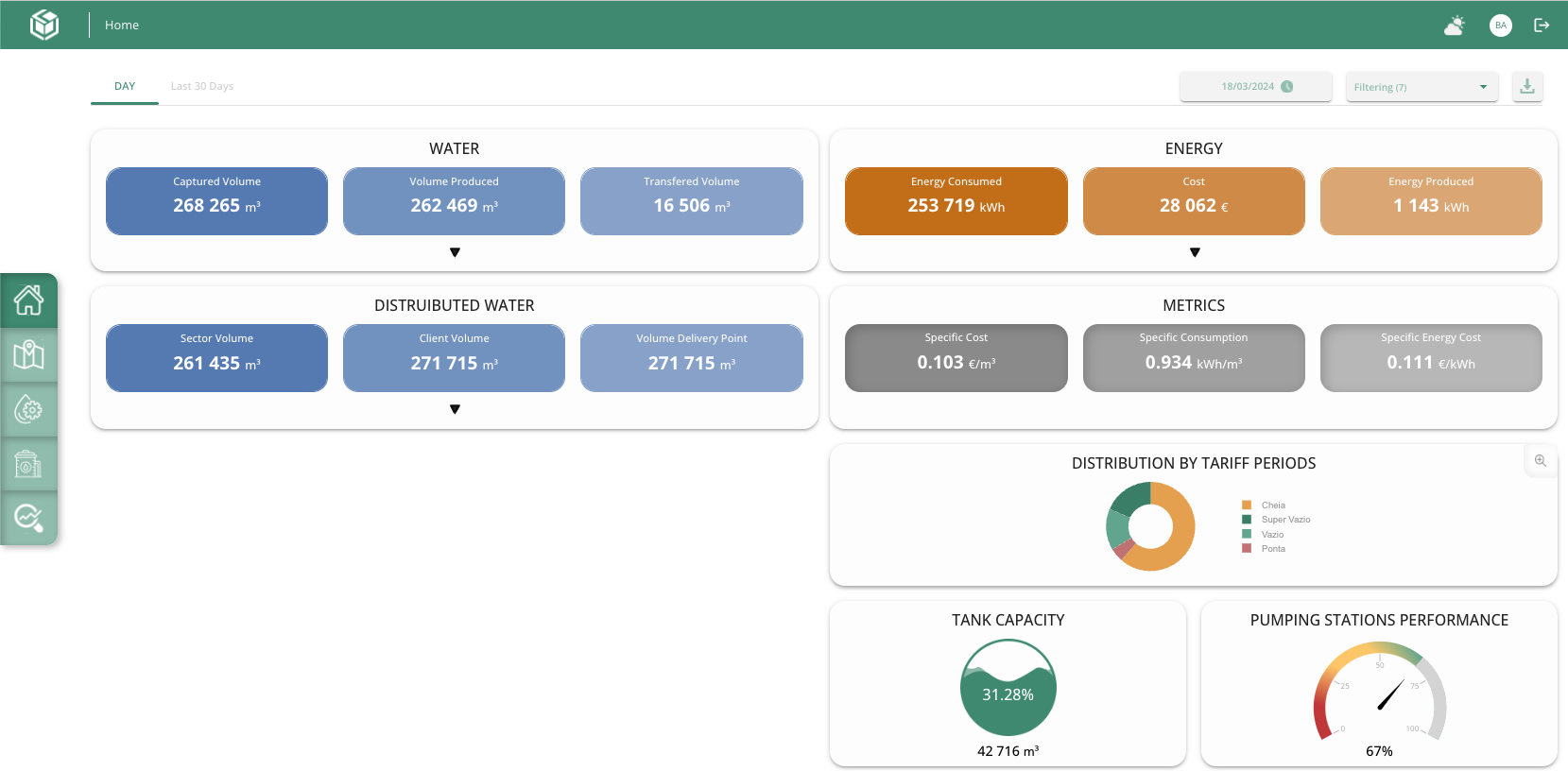
Description
SCUBIC Water System (SWS) is a suite of solutions that help water utilities optimize the Water-Energy-Data nexus. By combining decentralized databases with advanced machine learning, optimization techniques, and digital twins, SCUBIC solutions can forecast water demands, reduce energy consumption, improve the daily decision-making process, optimize pump performance, and calculate all major performance metrics automatically. SCUBIC process optimization can be connected directly to the SCADA system transforming it from a reactive system to a predictive system that can anticipate changes in the process and make decisions automatically.
Target audience
Owner of the product
Sign in to access this information.Actors, their roles and interactions
water utilities, energy utilities
Unique selling points
SCUBIC WATER SYSTEM is one of the king solutions that make decisions autonomously controlling the entire water production and transport process to improve the water-energy nexus.
Water utilities are intensive energy consumers with complex networks and systems to control. At the same time, they have unique data covering most of the entire water process. However, combining decentralized databases and creating real-time information that can automatically improve daily decision-making has proven to be a complex problem to solve.
SCUBIC dedicated machine learning and optimization algorithms can: recognize patterns and identify trends; predict water demands aiding in managing water resources efficiently; detect anomalies in processes and sensors enabling rapid response to potential incidents, and maximize efficiency in water treatment and distribution process autonomously.
Technical requirements
SWS just needs access to the utilities databases.
Software data
|
2.0
(Last update: 2024-03-19) |
|
| 2020 | |
|
|
| Commercial |
